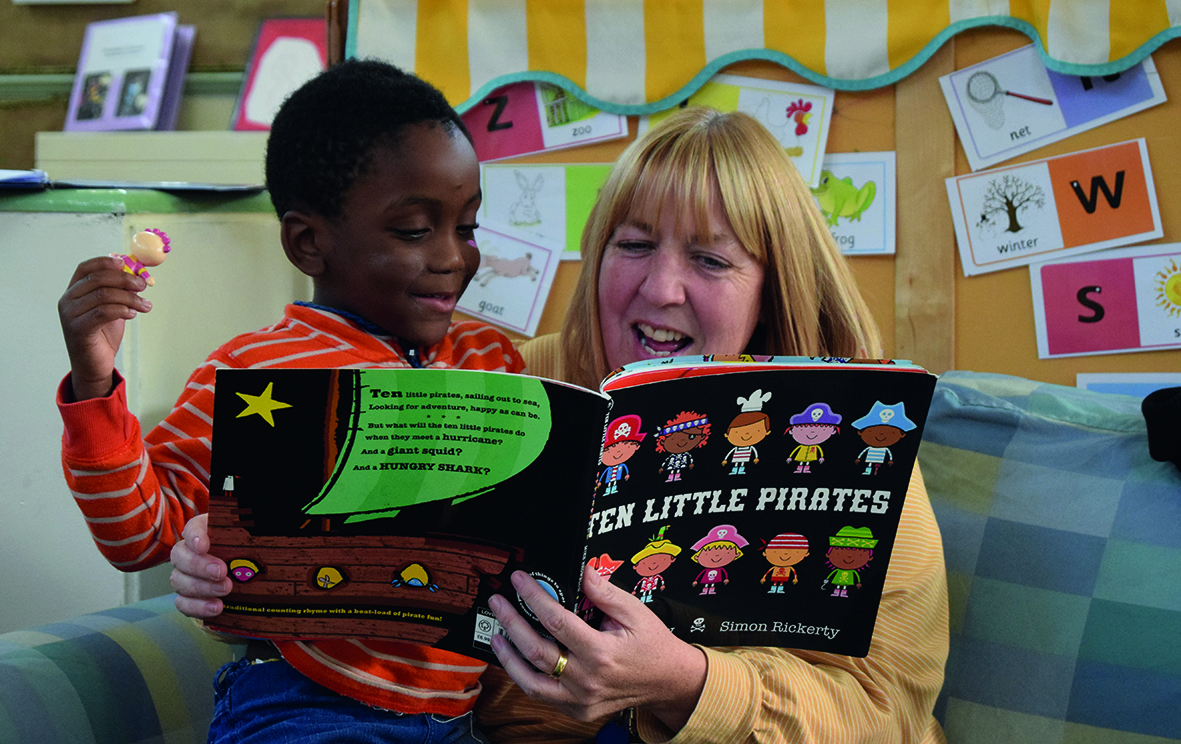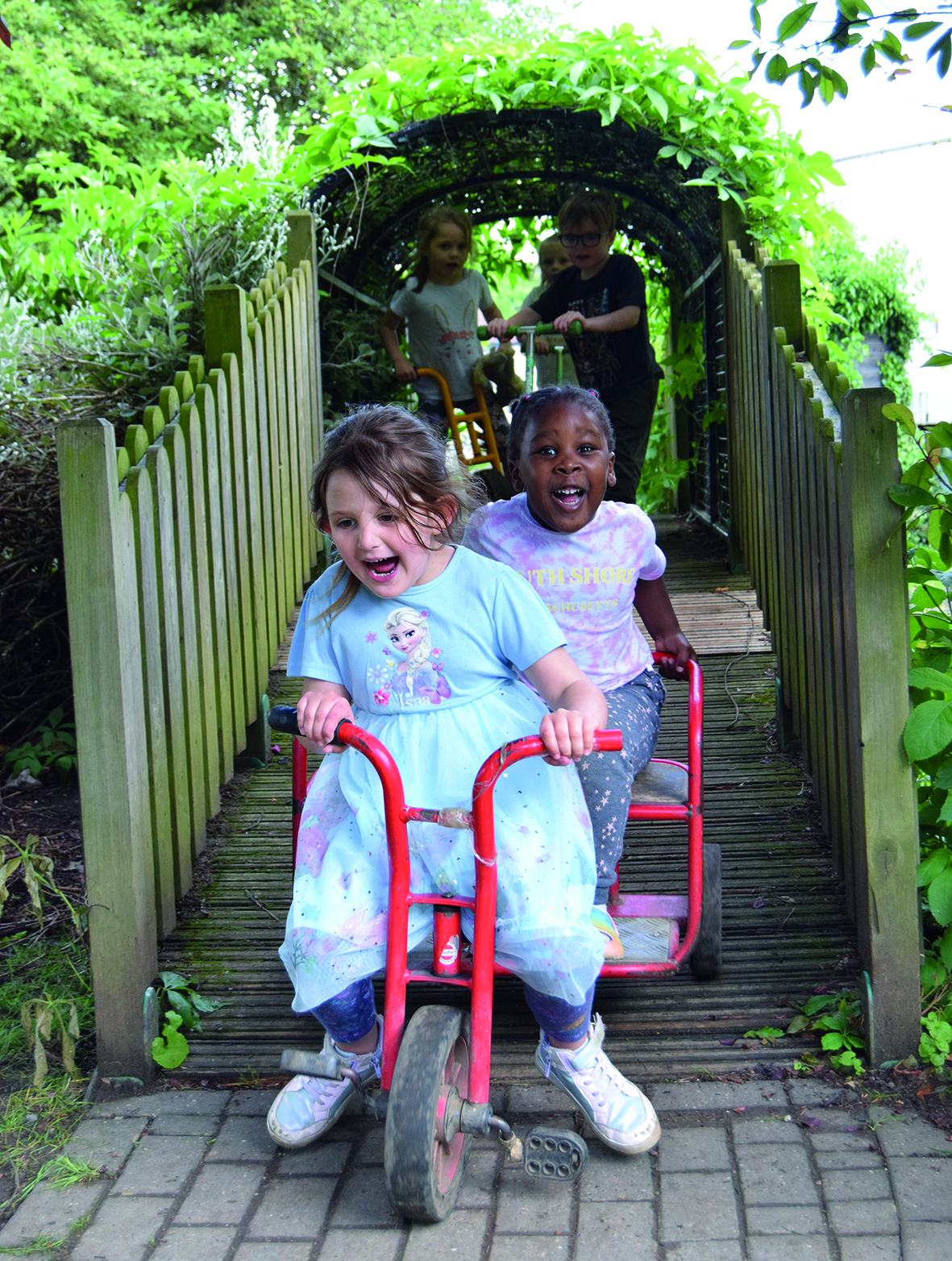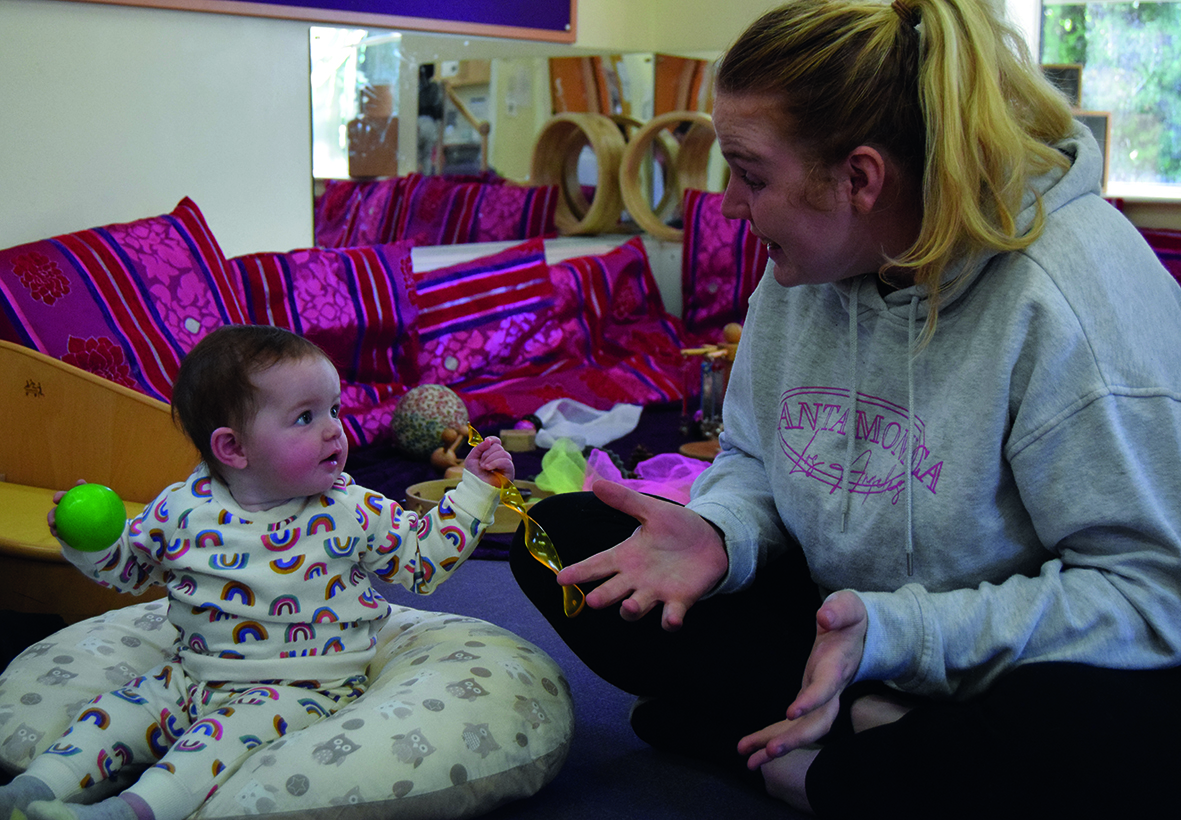
The Pen Green Centre for children and their families, located in Corby, Northamptonshire, was a trailblazer for the multi-agency Sure Start approach, helping shape the Sure Start model. Founded in the early 1980s, it was one of the first integrated centres, jointly funded by education, social care and health budgets. Now, 40 years on, the centre has grown from having six staff to over 100, and over 300 children currently attend.
It is still a model of an integrated approach to early education, working with a health visitor and family support team, as well as having a Research, Development and Training Base (RDTB). It also includes a children's centre, birth to threes education with care and a nursery school (with teaching school status), a crèche and both on- and off-site nurseries, caring for children aged from 12 weeks to five years old.
Pen Green is widely respected for its quality of practice and research grounding, with the DfE publishing Pen Green-written guidance on the SEND element of the recent EYFS reforms (see Further information). With the removal of Sure Start funding, today the children's centre services are funded by Northamptonshire Children's Trust, while the RDTB generates all of its own income through offering undergraduate and postgraduate degree programmes, apprenticeships and teacher training, as well as bespoke training. Staff from the base also support action research projects that inform practice both at the Pen Green Centre and more widely by publishing findings and sharing research at conferences.
HOME GROWN
 Most of the staff working across the settings at Pen Green were trained at RDTB, and all practitioners are encouraged to do action research. Tracy Gallagher, joint head of the Pen Green Centre, says the primary aim of this is to develop staff in order to improve outcomes. ‘It's wonderful, if for some research projects, we’re able to publish and share our findings more widely, but the critical element is that we remain the best we can be for every child every day. We want staff to feel highly skilled and competent, so it's very developmental.’
Most of the staff working across the settings at Pen Green were trained at RDTB, and all practitioners are encouraged to do action research. Tracy Gallagher, joint head of the Pen Green Centre, says the primary aim of this is to develop staff in order to improve outcomes. ‘It's wonderful, if for some research projects, we’re able to publish and share our findings more widely, but the critical element is that we remain the best we can be for every child every day. We want staff to feel highly skilled and competent, so it's very developmental.’
The leadership team acknowledge that in many early years settings, finding the time and headspace to engage in research projects as well as carry out day-to-day work is a significant challenge. This is where Pen Green finds the researchers at the RDTB essential in supporting nursery staff, providing literature for practitioners to explore and offering provocations and support.
Catherine Clark, a tutor on the degree and apprenticeship programmes, says, ‘As researchers, we have a really solid understanding of early years practice… but we’re not intertwined in the dynamics that happen day to day, so we have a clear mind when we come together with practitioners to be able to encourage people to sit back and take a moment.’
The relationship between the research and nursery teams goes both ways, she adds, and having time to reflect is beneficial for both. ‘If we’re working alongside nursery teams supporting them to do their own research and improve practice, then when we’re teaching other degree programmes, we have a lot of real life experiences to draw on.’
The RDTB also has a steering group, comprising various academics and specialists including Dr Jools Page, Penny Holland and Professor Chris Pascal. The group meets twice yearly and acts as a forum to share expertise and research curiosities, provide support with methodology and ethics and suggest places to publish research findings.
PRACTITIONER-LED PROJECTS
 According to Tracy Gallagher, joint head of the Pen Green Centre, while the leadership team engage with the research projects taking place, the areas of focus have to be determined by the practitioners themselves. ‘It has to be an intrinsic motivation. It has to come from them and what they’re curious about.’ The support given from leadership is therefore to ask questions such as ‘How are we going to explore this and what would your methodology be?’ This approach encourages practitioners to be as curious and investigative as the children that they care for.
According to Tracy Gallagher, joint head of the Pen Green Centre, while the leadership team engage with the research projects taking place, the areas of focus have to be determined by the practitioners themselves. ‘It has to be an intrinsic motivation. It has to come from them and what they’re curious about.’ The support given from leadership is therefore to ask questions such as ‘How are we going to explore this and what would your methodology be?’ This approach encourages practitioners to be as curious and investigative as the children that they care for.
‘It's a really core part of our practice. We’re encouraging children to be intrinsically motivated in their own learning and find out what interests them and how they want to change the world around them,’ says Clark. ‘We have exactly the same approach to adult education. Let's think about what inspires and interests you and let's build on that.’
Research carried out by practitioners so far includes projects on schemas and project-based learning as well as methods for observing children. The latest project, which is still at the conceptualisation stage, looks at children's lived experiences of the Covid pandemic and how these have affected their development.
WHAT KIND OF RESEARCH?
 Felicity Dewsbery, deputy head of Pen Green and lead at the RDTB, explains that Pen Green has a role to play in broadening opinions about the sort of research that ‘counts’. ‘There's a real fantasy around what is research-based evidence,’ she says. ‘That if you haven't had a randomised controlled trial, then it's not qualified as a piece of research.’
Felicity Dewsbery, deputy head of Pen Green and lead at the RDTB, explains that Pen Green has a role to play in broadening opinions about the sort of research that ‘counts’. ‘There's a real fantasy around what is research-based evidence,’ she says. ‘That if you haven't had a randomised controlled trial, then it's not qualified as a piece of research.’
Most of the approaches used at Pen Green are qualitative; projects have used action research methodologies as well as phenomenological approaches and ethnography. ‘To do an RCT [randomised controlled trial] isn't necessarily going to give a [true] outcome… this type of research does generate practice-based evidence,’ Dewsbery says.
Tate adds that when working with families who need and are entitled to support and interventions, then following an RCT methodology, whereby some families receive support while others don't, raises moral issues. ‘If you’re not offering a family support who needs it, then I don't think that's ethical,’ she says.
Pen Green has, however, been hit hard by local pressures on finances, with North Northamptonshire Council redistributing £523,000 of Pen Green's historic core funding to other nursery schools last year.
‘We want to always be leading practice, challenging practice,’ says Angela Malcolm, joint head. ‘Putting quality first and not being driven by “this is good enough”. We have to strive to be the best we can every day and to make a difference to children and families today, not tomorrow and not next week… we have to remain excited.’
PEN GREEN FACTS
- Opened in 1983, becoming a Sure Start centre in 1999
- Comprises: 108 staff working at a nursery school, a children's centre, various nurseries, parent support sessions, and a Research, Development and Training Base
- Leads research and promotes multi-agency working, including being commissioned by the DfE to write guidance on implementing the revised EYFS framework
- Core funding was cut by £523,000 last year
Research: supervision and wellbeing
Supervision is the practice of meeting regularly with a supervisor to monitor and reflect on practice, discuss challenges and provide support. It is more commonly provided in clinical and social care. All staff at Pen Green are given training in supervision and access one-hour supervision meetings every four to six weeks. Most people are both supervisors and supervisees.
‘It's a place where we can process some of the complexity of the work that we face every day and how that impacts on our mental health and wellbeing,’ Felicity Dewsbery says.
Dewsbery is about to start a four-year research project looking at the mechanism of supervision. ‘The model is that there's an opportunity to reflect on how life is for you personally, also thinking about the children and the families and the impact that has, and also thinking about the organisation as a whole.’ She explains that unlike at some other settings, supervision at Pen Green isn't linked to appraisals or observations. Sessions are more about the supervisee bringing the issues and challenges that they want to discuss. ‘I really want to shine a light on what it looks like here at Pen Green, with a hope that what I find is transferable to other early years settings and potentially schools. I'm hoping it’ll have a big impact,’ Dewsbery says.
FURTHER INFORMATION
- Pen Green offers professional development visits to see the work that is done at the centre, http://pengreen.wpengine.com/about/professional-development-visits
- A list of Pen Green's research projects is available here, where you can also access papers and presentations that Pen Green staff have produced, https://www.pengreen.org/training-research-education/research-and-projects
- Pen Green's guidance on the revised EYFS, ‘A Celebratory Approach to Working with Children with SEND’, https://help-for-early-years-providers.education.gov.uk/?variant=_v2









